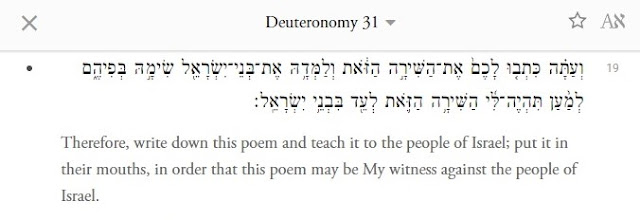Hi, I'm Mia Sherwood Landau, also known as Prayer Bubbe.
I love Jewish personal prayer and searched the web for years to learn about it, but found very little to read or to watch.
So, I created my course on Jewish Personal Prayer because it's the course I was searching for, but never could find.
 |
| Photo by Alex Woods |
For centuries, before the first Jewish prayer books, there was only personal prayer. In fact, group prayer is not mentioned at all in the Bible.
Both men and women always prayed to God on their own, and nothing is stopping us from praying on our own now.
Some of us didn't grow up with a Bubbe, which is a Yiddish word meaning Jewish grandma. That's why I decided to become Prayer Bubbe and to talk about praying in our own words, in our own language, simply and easily.
Collecting interviews for my book, I discovered that most of us didn't grow up hearing much about Jewish personal prayer.
We use a siddur, a Jewish prayerbook with traditional prayers spoken daily by Jews all over the world, in our congregations and at home. There are plenty of books and courses available on traditional Jewish prayer, online and offline.
By contrast, our personal prayer is not organized or required. It's spontaneous and free-flowing, anytime, anywhere. And it's hard to find anybody to guide and inspire us.
So, I taught a class on Facebook Live on a page called OneShul. Here's one of my videos for OneShul, and even though it's not as clear as YouTube videos, you'll see and hear me talking about Jewish personal prayer for about 18 minutes. It's a summary of all nine classes in the series.
Rav Daniel Ventresca and I got acquainted on Facebook, and I encouraged him to make a little video on prayer. So, he did it. Please spend four minutes watching Daniel talk about how our prayer is our gift to God. It's priceless!
Some of us didn't grow up with a Bubbe, which is a Yiddish word meaning Jewish grandma. That's why I decided to become Prayer Bubbe and to talk about praying in our own words, in our own language, simply and easily.
Collecting interviews for my book, I discovered that most of us didn't grow up hearing much about Jewish personal prayer.
Two Kinds of Jewish Prayer
We use a siddur, a Jewish prayerbook with traditional prayers spoken daily by Jews all over the world, in our congregations and at home. There are plenty of books and courses available on traditional Jewish prayer, online and offline.
By contrast, our personal prayer is not organized or required. It's spontaneous and free-flowing, anytime, anywhere. And it's hard to find anybody to guide and inspire us.
So, I taught a class on Facebook Live on a page called OneShul. Here's one of my videos for OneShul, and even though it's not as clear as YouTube videos, you'll see and hear me talking about Jewish personal prayer for about 18 minutes. It's a summary of all nine classes in the series.
"Torah is God's gift to us and it is the Word of God. It is his gift to us, but prayer, our words to the Almighty, our words to Hashem, to the Creator, that's our gift to God and God treasures every word.
"When you want to connect with the Almighty, when you want to connect to God, speak your heart, don't hold back. Let him know, let him hear, he knows what's going on in your heart.
He knows what goes on in your mind. He wants to hear the words, every word, every heartfelt, truthful word is your gift to God.
"Don't hold back. Know he wants to hear from you, God so desperately wants to hear from you."
Well, Daniel got to the heart of personal prayer, don't you think? He is a lawyer in Canada and I am a grandma in Texas, but we are united in our common bond of prayer to our Almighty God.
Daniel is an Orthodox Jew and I am a Reform Jew, but our common bond of prayer unites us in the most important way. It's not our lifestyle or the particular prayer book we use in congregation. It's our Jewish prayers that unite us.
Here's a list of the lessons included in my Jewish Personal Prayer course. Let me know if you'd like more details, ok?
Type in your email address here and I'll get back in touch with you. I make journals and planners with a Jewish Personal Prayer theme and you might like to see them, too.
Here's a list of the lessons included in my Jewish Personal Prayer course. Let me know if you'd like more details, ok?
Type in your email address here and I'll get back in touch with you. I make journals and planners with a Jewish Personal Prayer theme and you might like to see them, too.



























